Xiaomi Mi Max 3
Xiaomi Mi Max 3 Price in Bangladesh (BD)
As of October 2025, the price of the Xiaomi Mi Max 3 in Bangladesh is BDT 31,400. The smartphone has a 6.90-inch IPS LCD display, 4GB of RAM and 64GB of internal storage. It also features a 12 MP primary camera and a 8 MP selfie camera. It has a 5500mAh battery. This device is running on the Android 8.1 (Oreo), upgradable to Android 10, MIUI 12 and is powered by the Qualcomm SDM636 Snapdragon 636 (14 nm) chipset. The available colors for this smartphone are Black, Champagne Gold, Blue. It is now available in one variant: 4/64 GB priced at BDT 31400.

Xiaomi Mi Max 3 Specifications
| Launch | |
|---|---|
Announced We try to put down the date in which that specific device and its feature first got introduced by the manufacturer or trusted source. Or it could be dummy data if the device is in the rumored category. | 13 July, 2018 |
Status Status is usually used to mention the current market status of the device, it could be available, not available, upcoming, canceled, and more. SpecDecoder always tries to keep the device status according to the current market (may vary region-wise). | Available. Released 20 July, 2018 |
| Price | |
|---|---|
Colors Colors that are made available for the specific model of the device are shown here. Colors may vary depending on the region. | Black, Champagne Gold, Blue |
Models Models are the term that differentiates each product from the other one in the same category or brand. | M1804E4A |
Price The price of the device in Bangladesh and the USA is shown here with a currency symbol to clarify the amount precisely. Though the amount is not standard, it varies depending on the market, region, device color, and time. | 31,400.00 and $356.00 |
| BODY | |
|---|---|
Dimension The dimension or exterior physical measurement of the device which contains Length, Width, and height. For sliding or foldable devices, the measurement is provided in folded or slide-closed conditions. In a few phones, both may appear. Dimensions are usually expressed in two (2) different parameters which are: Inch (in.) and Centimeters (cm.) | 176.2 x 87.4 x 8 mm (6.94 x 3.44 x 0.31 in) |
Weight The weight (excluding SIM, Memory card, or any external component) of the phone is mentioned in this section if disclosed by the manufacturer or obtained from a trusted source. It is expressed in two (2) different units which are: Grams (gm.) and ounce (oz.). | 221 g (7.80 oz) |
Build If the phone manufacturer discloses the material used in the device then it'll appear in this section. i.e.: Glass front, glass back, aluminum frame denotes, the front glass is processed with glass protection, the rear cover or battery cover is made of glass only and the body is made of aluminum. | Glass front, aluminum back, aluminum frame |
SIM Phones may have multiple SIM support such as Single SIM, Dual SIM, Dual SIM dual standby, Dual SIM (with e-SIM), and a few others. Also, the SIM size is mentioned in this section. SIM sizes: Full-size SIM (1FF), Mini-SIM (2FF), Micro-SIM (3FF), and Nano-SIM (4FF). | Hybrid Dual SIM (Nano-SIM, dual stand-by) |
| Display | |
|---|---|
Type The display type is mentioned such as TFT, IPS LCD, AMOLED, OLED, sAMOLED, Retina, and many other types. Also, the color schemes are mentioned along with the display refresh rate and other supportability features. | IPS LCD |
Size Display sizes are measured diagonally. It varies from device to device. Also, screen-to-body ratio measurement takes part in this section to explain the amount of bezel the device has. Screen to body ratio often denotes how much area the screen is covering of the phone’s face. | 6.9 inches, 122.9 cm2 (~79.8% screen-to-body ratio) |
Resolution Resolution is the most used work in video files or displays technology. The resolution simply means the pixel count in each plane (horizontal and vertical). Now for example, if we say a display resolution is 1920x1080, then it means it has 1920 pixels horizontally and 1080 pixels vertically. Here, the aspect ratio would be Length / height which is 1920/1080 = 16/9 = 1.77. | 1080 x 2160 pixels, 18:9 ratio (~350 ppi density) |
Protection Most smartphones provide display protection features to save from scratches and dents. If any protection feature is available in any smartphone then it'll appear in this section. | To be confirmed |
| Platform | |
|---|---|
OS OS denotes to Operating System which is one of the most essential elements to run a mobile device. | Android 8.1 (Oreo), upgradable to Android 10, MIUI 12 |
Chipset Chipset or Processor is one of the most important elements for a mobile device. Different mobiles or smartphones might have different processors depending on the features. Chipset manufacturers differentiates their chips by unique model number. | Qualcomm SDM636 Snapdragon 636 (14 nm) |
CPU CPU stands for Central Processing Unit. In the chipset, the configuration is shown in this tab. It explains how many cores are there in the processor or what is the clock speed, also it shows a visitor what type of architecture is used in that specific model of the chipset. | Octa-core (4x1.8 GHz Kryo 260 Gold & 4x1.6 GHz Kryo 260 Silver) |
GPU GPU stands for Graphics Processing Unit. It is embedded on the chip used as a processor. The different processors might have different GPU profiles. GPU helps a mobile device to render the image or encode/decode any media file easily. | Adreno 509 |
| Memory | |
|---|---|
Card Slot Card Slot explains if there is any memory or expandable storage slot to expand the storage in the device. | microSDXC (uses shared SIM slot) |
Internal It shows the internal storage structure of a device, like how many megabytes/gigabytes of RAM or ROM the devices have. Or how many variants are available from a storage perspective. | 64GB 4GB RAM, 128GB 6GB RAM |
| eMMC 5.1 | |
| Rear Camera | |
|---|---|
| Dual | 12 MP, f/1.9, 1/2.55", 1.4µm, dual pixel PDAF 5 MP, f/2.2, (depth) |
Features Additional features except for capturing photos only are offered by the manufacturer in their cameras such as flash, HDR support, or modes are shown here. | Dual-LED flash, HDR, panorama |
Video How many combinations you can use to capture videos using the rear camera of this device. This is mostly disclosed by the mobile phone manufacturer. | 4K@30fps, 720p/1080p@30fps (gyro-EIS), 720p@120fps |
| Front Camera | |
|---|---|
| Single | 8 MP, f/2.0, 1/4", 1.12µm |
Features Additional features except for capturing photos only are offered by the manufacturer in their cameras such as flash, HDR support, or modes are shown here. | - |
Video How many combinations you can use to capture videos using the front camera of this device. This is mostly disclosed by the mobile phone manufacturer. | 1080p@30fps |
| Sound | |
|---|---|
Loudspeaker It shows if the device offers a loudspeaker option or not. Also, if a device supports stereo sound or other formats it'll appear in this field. | Yes, Stereo speakers |
3.5mm Jack A universally accepted lossless audio jack that has a diameter of 3.5 mm. More or less every mobile device uses this port to deliver the audio signal to pass on enhancements accessories such as an earphone or external amplifier system. | Yes |
| NETWORK | |
|---|---|
Technology Technology denotes the network standard which is available in that device. Mobile devices may support various network standards depending on the region or device type. Usually, we've noticed mobile manufacturers provide CDMA, 2G, 3G, 4G, and 5G standards in their cell phones nowadays. This section is designed to portray all the supported network technology in a device. Network technology may vary from one device to another. | GSM / CDMA / HSPA / EVDO / LTE |
| 2G Bands | GSM 850 / 900 / 1800 / 1900 - SIM 1 & SIM 2 |
| CDMA 800 & TD-SCDMA | |
| 3G Bands | HSDPA 850 / 900 / 1900 / 2100 |
| CDMA2000 1xEV-DO | |
| 4G Bands | 1, 3, 4, 5, 7, 8, 20, 34, 38, 39, 40, 41 |
| Speed | HSPA 42.2/5.76 Mbps, LTE |
| COMMS | |
|---|---|
| WLAN | Wi-Fi 802.11 a/b/g/n/ac, dual-band, Wi-Fi Direct, DLNA, hotspot |
Bluetooth BlueTooth is a channel/name of communication method based on a certain radiofrequency. From the very beginning, it has been used by mobile devices to share files in between two devices. The usual range is from 10m to 100m. | 5.0, A2DP, LE |
| Positioning | Yes, with A-GPS, GLONASS, BDS |
NFC NFC is short-range wireless communication technology. By using this technology we can do contactless payments. Which share data over radiofrequency. | No |
Radio Usually most android smartphones including feature phones have these radio options. Users can tune the FM Radio channel by using this feature. | FM radio |
Infrared IR Blaster is an InfraRed signal transmitter or InfraRed LED which is placed in smartphone devices to control the remote-controlled device by the phone (without having the remote of that appliance or device). | Yes |
USB Type USB is an industry-standard bus using which users can connect peripherals/enhancement devices to a system. i.e.: connecting a mouse to a computer using the USB port. It is a bus where data send/received may take place depending on the purpose. | USB Type-C |
| Features | |
|---|---|
Sensors In this field you'll see all the embedded sensor names on the device such as: Accelerometer, Gyroscope, Proximity, Barometer, Temperature, Ambient Light Sensor, and similar. | Fingerprint (rear-mounted), accelerometer, gyro, proximity, compass |
| Battery | |
|---|---|
Type There are various types of batteries are used in mobile devices. Among them, the most popular is Li-Po and Li-ion. | Li-Ion 5500 mAh, non-removable |
Charging The charging information such as: how much time it requires to get fully charged or if any other charging features are supported by the device. Such as Quick Charge, Fast Charge, HyperCharge, or similar features. | Fast charging 18W Quick Charge 3.0 |
| Tests | |
|---|---|
Performance In this field, the test result from different benchmark applications are shown to justify the performance of the device from a different perspective. Measures take place based on CPU, GPU, Audio engine, Camera, and a few other terms. | AnTuTu: 119229 (v7) GeekBench: 4907 (v4.4) GFXBench: 6fps (ES 3.1 onscreen) |
Our Rating:
Build
0Performance
0Camera
0Connectivity
0Battery
0Total
0Ratings are based on specifications and the price of the device.
Xiaomi Mi Max 3 Price in Bangladesh: October 2025
The Xiaomi Mi Max 3 is now available in one variant (4GB RAM/64GB ROM). Now, the Xiaomi Mi Max 3’s price is 31400 taka in Bangladesh. The Mi Max 3 has a Li-Ion 5500 mAh, non-removable battery with (Fast charging 18W; Quick Charge 3.0) charging. This device is running on the Android 8.1 (Oreo), upgradable to Android 10, MIUI 12 and is powered by the Qualcomm SDM636 Snapdragon 636 (14 nm) chipset.
| Smartphone Model | Xiaomi Mi Max 3 |
| Price | BDT 31,400 |
| Display | 6.9 inches, 122.9 cm2 (~79.8% screen-to-body ratio) |
| RAM | 4GB/6GB |
| ROM | 64GB/128GB |
| Release | 2018 July |
Frequently Asked Questions About the Xiaomi Mi Max 3:
Answer: The Xiaomi Mi Max 3 will be released in July 2018.
Answer: The price of the Xiaomi Mi Max 3 in Bangladesh is BDT 31,400.
Answer: The Xiaomi Mi Max 3 costs USD 356 in the USA.
Answer: No, Xiaomi Mi Max 3 dont have 5G network bands.
Answer: Yes.


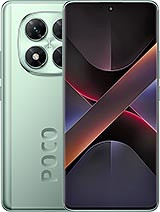
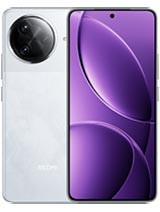
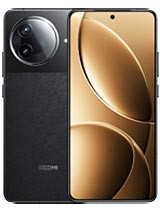









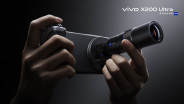

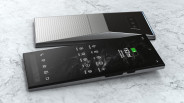


No Reviews Yet !